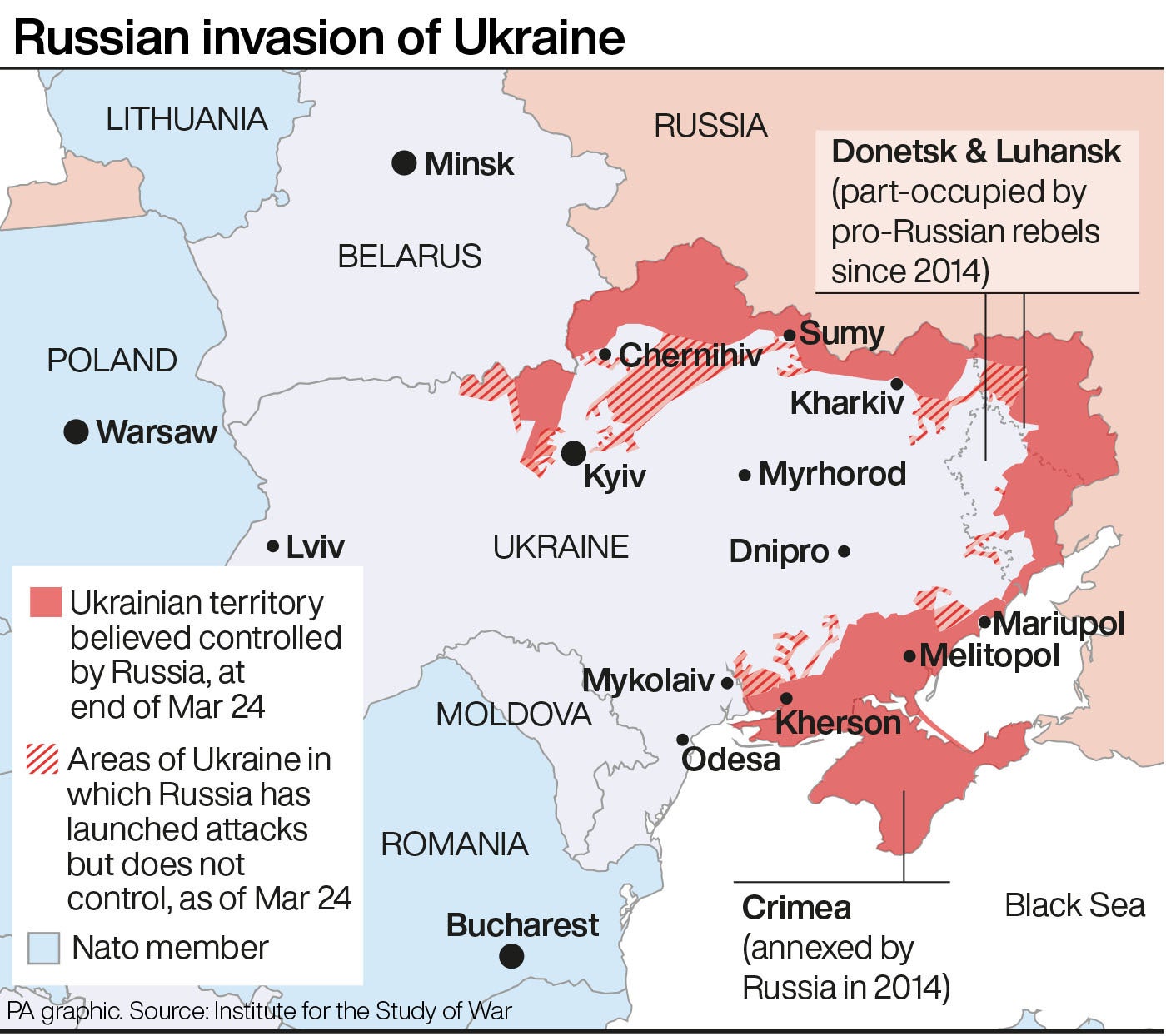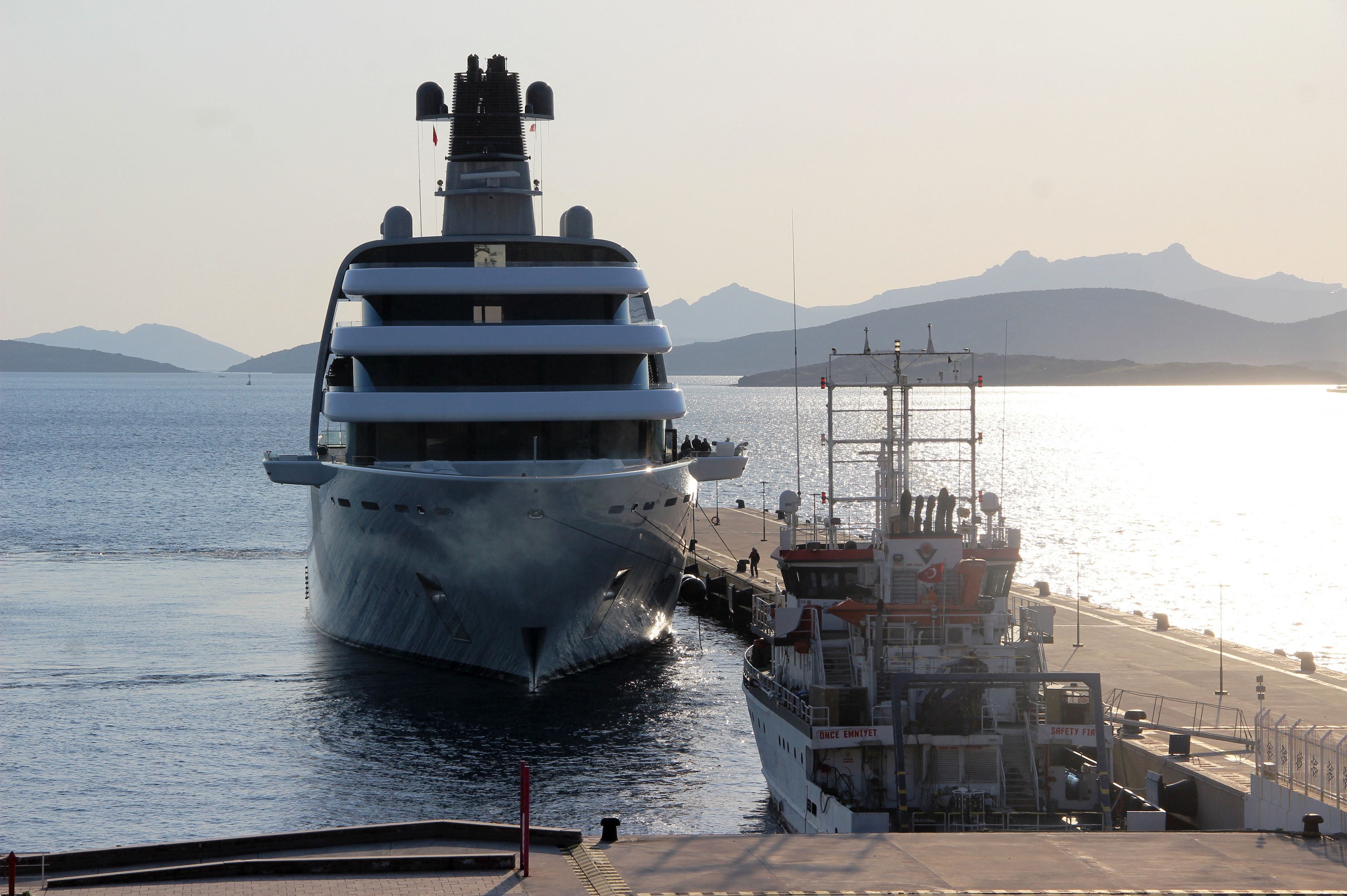Roman Abramovich and Ukrainian peace negotiators ‘victims of suspected poisoning’
Russian oligarch and two Ukrainians reportedly suffered symptoms including red eyes and peeling skin
Your support helps us to tell the story
From reproductive rights to climate change to Big Tech, The Independent is on the ground when the story is developing. Whether it's investigating the financials of Elon Musk's pro-Trump PAC or producing our latest documentary, 'The A Word', which shines a light on the American women fighting for reproductive rights, we know how important it is to parse out the facts from the messaging.
At such a critical moment in US history, we need reporters on the ground. Your donation allows us to keep sending journalists to speak to both sides of the story.
The Independent is trusted by Americans across the entire political spectrum. And unlike many other quality news outlets, we choose not to lock Americans out of our reporting and analysis with paywalls. We believe quality journalism should be available to everyone, paid for by those who can afford it.
Your support makes all the difference.Roman Abramovich and Ukrainian peace negotiators suffered symptoms of suspected poisoning after a meeting in Kyiv at the start of March, according to sources.
The Russian oligarch and at least two senior members of the Ukrainian delegation developed symptoms that included red eyes and peeling skin on their faces and hands, sources familiar with the matter told The Wall Street Journal and investigative news outlet Bellingcat.
The Independent understands that the current Chelsea FC owner suffered temporary blindness for several hours following the poisoning, but quickly recovered.
Mr Abramvoich accepted a request by Ukraine at the end of February to help negotiate an end to Vladimir Putin’s invasion just days after it started, and is said to still be interested in mediating despite the incident.
The Kremlin said last week that he played an early role in peace talks, but that the process was now in the hands of the two sides’ negotiating teams.
The sanctioned oligarch – who has repeatedly distanced himself from claims from the UK government and others that he is close to Mr Putin – is currently in Turkey, where a new round of peace talks are set to resume on Tuesday.
Mr Abramovich and the Ukrainian negotiators, who include Crimean Tatar lawmaker Rustem Umerov, have since recovered and their lives are not in danger, according to the sources.
Ukraine’s president Volodymyr Zelensky, who has met with Mr Abramovich, was not affected, they said. Mr Zelensky’s spokesperson said he had no information about the suspected incident.
Ukrainian officials dismissed the reports, with Mr Umerov urging people not to trust “unverified information” while another negotiator, Mykhailo Podolyak, said “there is a lot of speculation, various conspiracy theories”.
The suspected poisoning attack was blamed on hardliners in Moscow, sources told The Wall Street Journal, who they said wanted to sabotage talks to end Russia’s war in Ukraine.
Bellingcat said that three members of the delegation attending the peace talks on the evening of 3 March – including Mr Abramovich – experienced symptoms consistent with poisoning by chemical weapons.
Three members of the negotiating team retreated to an apartment in Kyiv later that night and reportedly felt initial symptoms that did not abate until the morning.
On 4 March, the group of negotiators drove from the capital to Lviv on the way to Poland and then Turkey’s capital Istanbul, to continue informal negotiations with the Russian side, Bellingcat said.

Chemical weapons specialists told the outlet that the symptoms were most likely the result of poisoning with an undefined chemical weapon, with microwave irradiation another but less probable hypothesis.
The experts said the dosage and type of toxin used was likely insufficient to cause life-threatening damage, and was probably intended to scare the victims.
Mr Abramovich was asked by Ukraine last month to help mediate because of his background in Russia, where he amassed wealth in the 1990s period of post-communist privatisation.
Under Mr Putin, Mr Abramovich served as governor of the remote Arctic region of Chukotka in Russia’s Far East before buying Chelsea in 2003.
Earlier this month Mr Abramovich had all his assets frozen in the UK and EU, with the British government saying that he had maintained a close relationship with Mr Putin for decades.
Two superyachts belonging to Mr Abramovich docked in Turkey in the last week, with Ankara saying it opposes sanctions imposed by its Nato allies on Russian oligarchs.

Last week, Mr Abramovich flew from Istanbul to Moscow to meet the Russian president and deliver a handwritten note from Mr Zelensky outlining the terms Ukraine would consider agreeing to in order to end the month-long war, according to The Times.
Putin’s response was reportedly: “Tell him I will thrash them.”
Mr Zelensky has urged US president Joe Biden to not sanction Mr Abramovich because Kyiv believes he might be a crucial go-between with Moscow, a Ukrainian official told The Wall Street Journal last week.
The first face-to-face peace talks in more than two weeks are set to take place in Istanbul on Tuesday, after Turkish president Recep Tayyip Erdogan spoke to Mr Putin on Sunday.
Ukraine is ready to declare neutrality and offer security guarantees to Russia, including keeping the country nuclear-free, if Russia withdraws its troops, Mr Zelensky has said.
Ukrainian officials have downplayed the prospect of a major breakthrough at the negotiations, but have suggested Moscow could be more willing to compromise having seen stiff resistance and heavy losses.

Join our commenting forum
Join thought-provoking conversations, follow other Independent readers and see their replies
Comments